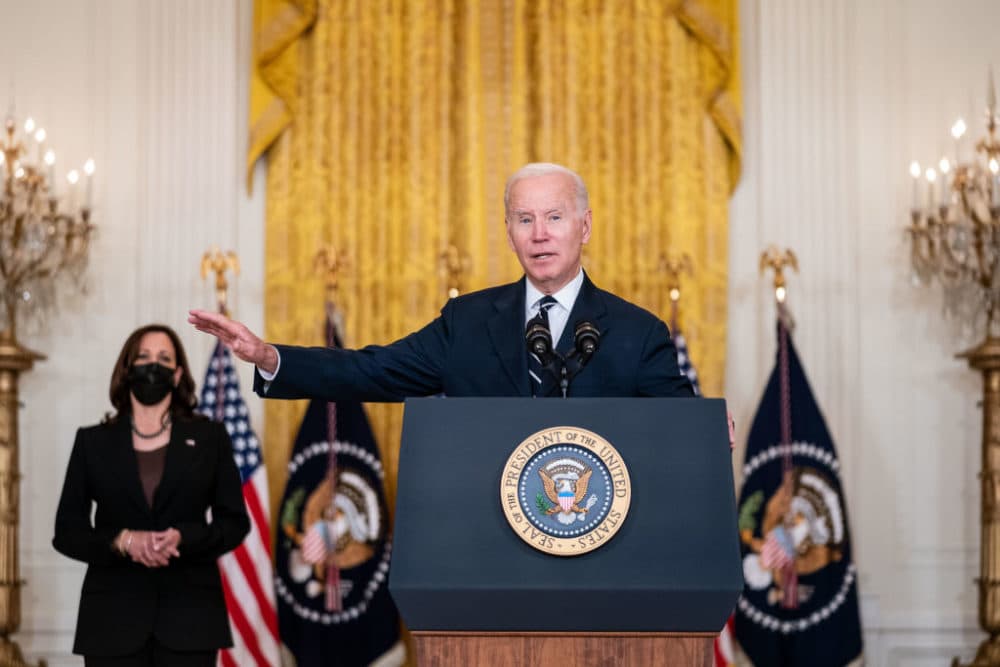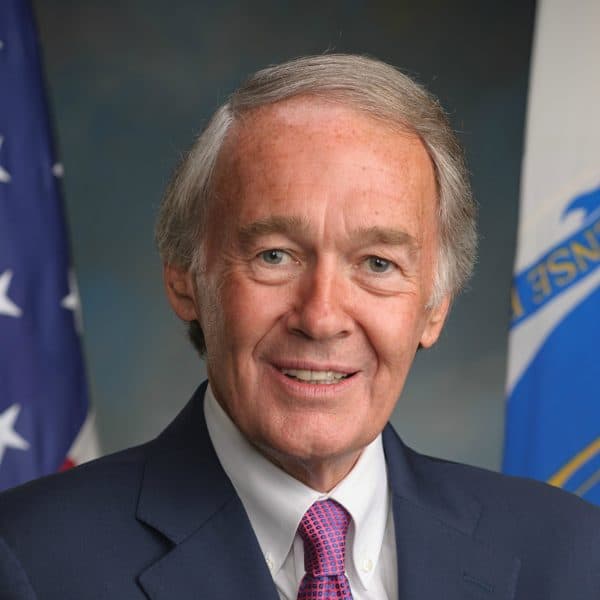Advertisement
Commentary
Ed Markey: Congress must send Biden to COP26 with a deal on climate

President Joe Biden will travel to Glasgow, Scotland over the weekend to meet with world leaders who will decide the future and fate of a livable climate for generations to come. At the United Nations Framework Convention on Climate Change 26th Conference of Parties (or COP26), the president will be expected to advocate for global climate cooperation in order to prevent a global temperature rise greater than 1.5 degrees Celsius, as laid out in the Paris Climate Agreement, and support new financial pledges for climate aid.
Ahead of the conference, the president announced a new framework for the Build Back Better deal that would invest a historic $555 billion in climate action and clean energy projects. An agreement is within arms’ reach, but more work still must be done in Congress to hammer out the details of the legislation before the president arrives at COP26.
If the president is to have enough leverage to not only reestablish the United States’ position as a world leader in combating our climate crisis, but also bring other countries along in establishing stronger emissions goals, the U.S. Congress must keep working over the next few days to come to a deal on a bold, climate-focused reconciliation package.
The United States is responsible for 40% of excess carbon dioxide in the atmosphere — with our outsize historic responsibility for the climate crisis, we have an outsize responsibility to solve it.
The countries most affected by rising sea levels and climate disasters are not just those least responsible for the crisis, but also those that have the fewest resources to respond. We must help these nations adapt and invest in clean energy technologies. Also, by moving early to a clean energy economy, we can reap the benefits of early adoption and secure our status as an exporter of American ingenuity, rather than be dependent on a supply chain abroad.
The Build Back Better framework must make the investments we need to deliver on our international commitment to cut climate pollution by at least 50% by 2030, below 2005 levels. It must create good-paying, union jobs in a clean economy that works for all communities. And it must center environmental, economic, and racial justice at the heart of every policy. That is our “climate test.”
The framework currently includes a national climate bank to leverage private and public investment and hasten the deployment of clean energy projects in communities across the nation. It includes a robust, 10-year package of clean electricity, vehicles and manufacturing tax credits and would invest in renewable energy throughout the country. As we work through the details of the plan, we should strike outdated, unnecessary and harmful fossil fuel subsidies and update our transmission systems to drastically cut greenhouse gas emissions.
But we also must set an example for the rest of the world by making bold investments in environmental justice to redress the devastating health and economic impacts of toxic pollution, primarily in Black, Brown and Indigenous communities. Replacing lead pipes across the country, building healthy ports, investing directly in communities impacted by environmental injustice, and cleaning up air pollution will allow us to begin to right historic wrongs and provide justice for disenfranchised communities.
Advertisement
The United States is responsible for 40% of excess carbon dioxide in the atmosphere — with our outsize historic responsibility for the climate crisis, we have an outsize responsibility to solve it.
And we can spur economic opportunities for communities of color that have been excluded from the system for far too long. By creating a robust Civilian Climate Corps, which is included in the current framework, we can train the next generation of diverse workers for careers in the clean energy economy and create new, good-paying jobs strengthening community resilience, recovering from climate disasters, cleaning up pollution, and achieving key environmental justice goals.
Will this $1.75 trillion bill do everything we need to combat the climate crisis and stop global temperature rise? No. There will always be more work to do to address the existential crisis of our time. But the Build Back Better deal will take necessary steps to help us cut harmful emissions, create jobs and promote justice.
After four years of Donald Trump’s climate destruction and denial, President Biden has the chance to show the world that “America is back.” The Build Back Better Act is our opportunity to recommit to transformational investments in climate action. Rejoining the Paris Climate Agreement and strengthening our Paris climate pledge were critical steps, but now it’s time to deliver on our promises.
Traveling to Glasgow without a sealed deal on climate action would be an abdication of our responsibility to the next generation — a generation that is taking to the streets in countries around the world to demand a livable future. This generation understands what is at stake if the president shows up to COP26 empty-handed: their jobs, their families and their futures.
The climate crisis has scientifically established deadlines — deadlines that are rapidly passing us by — if we want to avoid the worst climate consequences. The COP26 summit is the most important opportunity for world leaders to take bold action before it is too late to secure a livable climate. As seas rise, disasters strike every region of the United States with frightening regularity, temperatures reach record heights and our environment is thrown into chaos, our prosperity and very lives are at stake. It’s time to act now.
This story is part of Covering Climate Now, a project aimed at strengthening the media’s focus on the climate crisis. WBUR is one of 400+ news organizations that have committed to a week of heightened coverage around the COP26 climate summit in Glasgow. Check out all our coverage here.
